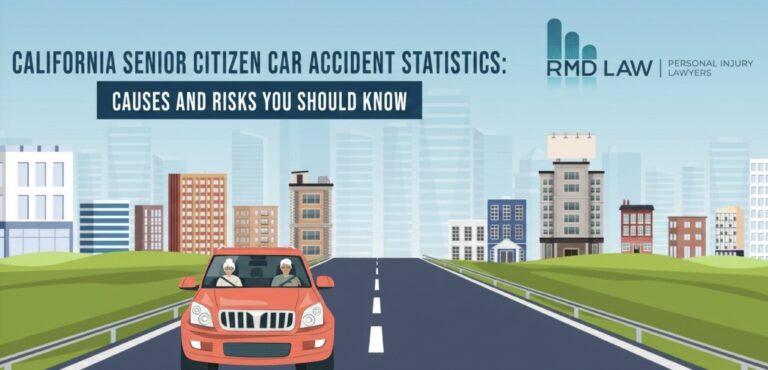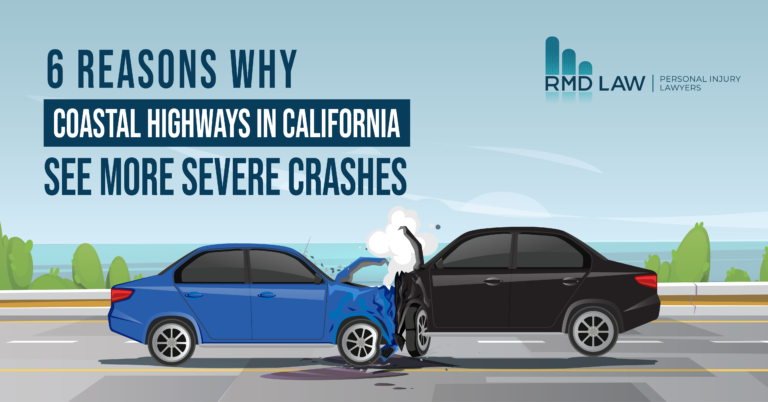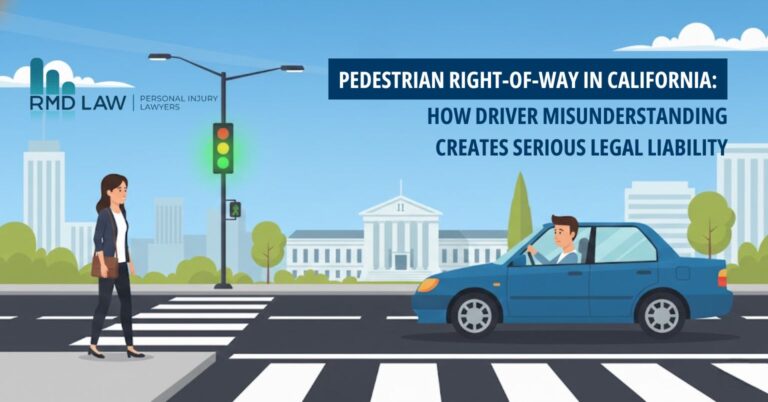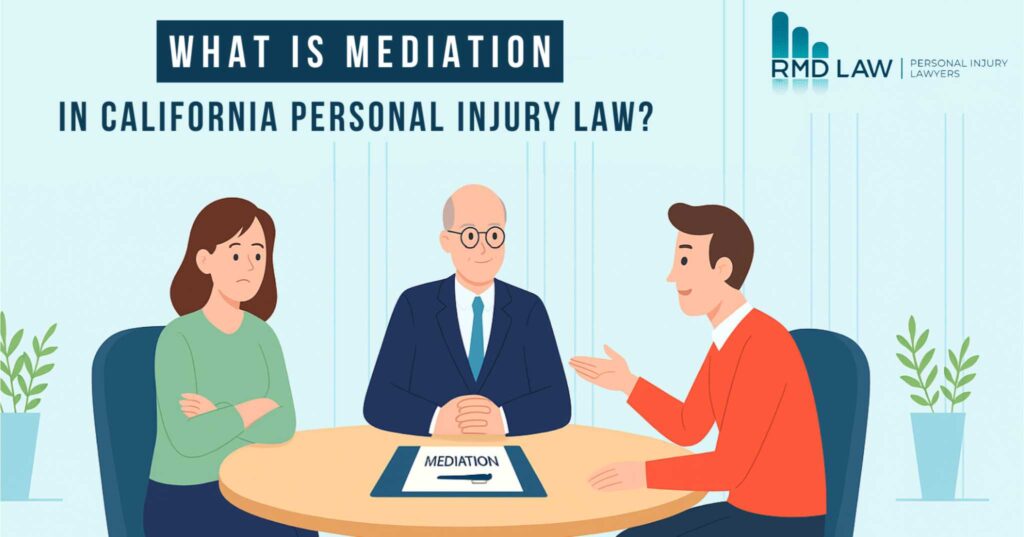
Key Takeaways:
What Is Mediation in Personal Injury Law?
-
Mediation in personal injury law is a voluntary and confidential process where a neutral third party (commonly referred to as a mediator) helps injury victims and insurance companies reach a settlement outside of court.
-
Unlike a trial, mediation allows both parties to negotiate terms privately and avoid the unpredictability and stress of a courtroom.
Mediation Is Often Better Than a Jury Trial in California
-
Mediation offers faster resolutions, lower costs, and more control for personal injury plaintiffs compared to a jury trial.
-
In California, over 95% of injury cases settle out of court, and courts often encourage mediation before trial; in some cases, mediation can also be court ordered to help reduce backlogs. It’s a strategic tool to resolve disputes efficiently and with less emotional toll.
RMD Law Helps Clients Navigate Mediation Successfully
-
RMD Law’s personal injury attorneys provide expert guidance during mediation by preparing persuasive case briefs, selecting experienced mediators, and negotiating aggressively to secure fair compensation.
-
With deep knowledge of California law and a client-first approach, RMD Law ensures clients are fully supported through every step of the mediation process.
What is Mediation?
Mediation in Personal Injury Law
When you’ve been injured in an accident, navigating the legal system can feel overwhelming. Many Californians assume a lawsuit will end in a dramatic courtroom trial – but the reality is, most personal injury cases never make it to a jury. No matter if your accident was a slip-and-fall, pedestrian accident, dog bite case, car accident, or even wrongful death, attorneys and insurance companies will try to settle the case outside of court. Instead, they’re resolved through a process called mediation, which is one of the key processes used in the legal system to resolve disputes efficiently.
So, what is mediation, and why is it becoming the go-to solution for settling personal injury disputes in California? In this blog, we’ll break down the basics of mediation in personal injury law, explore its advantages over a trial, and explain how the experienced personal injury attorneys at RMD Law can guide you through it successfully. Mediation involves disputing parties, meaning the individuals or entities involved in the dispute, working together with a neutral mediator to reach a mutually acceptable resolution.
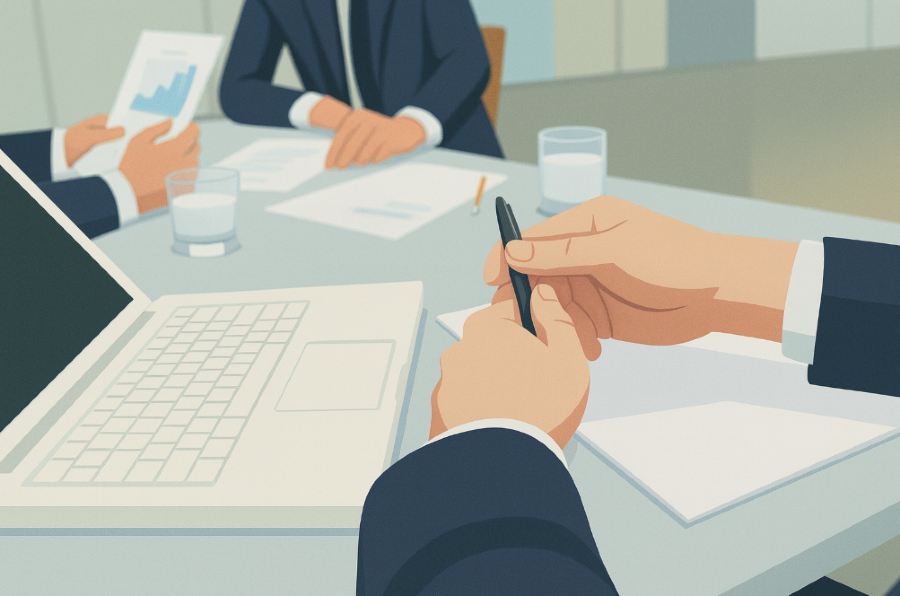
Mediation Offers a Smarter Way to Settle Injury Claims
Mediation in personal injury law is a form of alternative dispute resolution where an injured party and the opposing side (usually an insurance company or defendant) try to settle the case outside of court, with the help of a neutral third-party mediator. The mediator is a neutral person who facilitates the process, ensuring fairness and guiding both parties toward resolution. Instead of battling in a courtroom, both sides sit down (often in separate rooms) and let the mediator shuttle between them to negotiate a mutually acceptable settlement.
Mediation is voluntary and informal – no judge, no jury, and no public courtroom proceedings. It’s also confidential, meaning nothing said during mediation can be used later if the case goes to trial (California law explicitly protects mediation confidentiality under Evidence Code sections 1115–1128). In short, mediation offers a private, faster, and often less stressful path to resolve a personal injury claim than a jury trial.
Why focus on mediation? Statistics show that the vast majority of personal injury cases never reach a trial. In fact, roughly 95–96% of personal injury cases are settled out of court (only about 4–5% go to a jury). Many of those settlements are achieved through negotiations or mediation rather than full-blown litigation. During mediation, the negotiation process is facilitated by the mediator, who helps both parties explore settlement options and work toward a binding agreement or, if necessary, declare an impasse.
Trials are costly, unpredictable, and time-consuming – whereas mediation gives the parties more control over the outcome and typically resolves the dispute much sooner. Mediation work helps resolve disputes before trial by using a neutral person to facilitate communication and negotiation, often leading to a settlement without the need for litigation. Below, we explain the key characteristics of mediation, when it’s used in California personal injury cases, the benefits it offers over a trial, and how a personal injury lawyer at RMD Law can help you navigate the mediation process.
Key Characteristics of Mediation in Injury Cases
Mediation has some defining features that distinguish it from a courtroom trial or even other forms of dispute resolution. Here are the key characteristics of mediation, particularly as it applies to personal injury claims. At the start of the mediation session, the mediator meets with both sides to begin the process:
-
Voluntary Process: Mediation is typically voluntary – both sides must agree to mediate. It is a facilitated negotiation, not a binding judgment. If either party isn’t satisfied with the proposed settlement, they can walk away. (In fact, the non-binding nature of mediation is a double-edged sword: it gives you freedom to reject an unfair offer, but it also means an unreasonable opponent can refuse to settle, forcing you to litigate.)
-
Neutral Third-Party Mediator: The process is led by a neutral mediator – often an experienced attorney or retired judge – who does not have the power to decide the case. Unlike a judge or arbitrator, the mediator doesn’t issue rulings or verdicts. Their role is to facilitate communication, help both sides understand each other’s positions, and work toward a compromise. The choice of mediator is important; a skilled mediator with experience in personal injury cases can often steer both sides toward a fair middle ground and may even sway the defense into offering a higher settlement.
-
Confidential and Private: Mediation discussions are confidential. Nothing you or the other side say during mediation can be used as evidence if the case later goes to court. California has some of the strongest mediation confidentiality laws in the country (California Evidence Code §1119 ensures communications in mediation are not admissible in court). This privacy lets both parties speak openly and honestly without fear that admissions or offers will come back to haunt them. The sessions are held in private offices or meeting rooms – not in open court – so the details of your injury, negotiations, and any settlement remain private.
-
Informal Setting: A mediation is far less formal than a trial. There’s no witness stand, no cross-examination, and typically you won’t even sit face-to-face with the opposing party unless both sides want a joint session. Mediation often begins with an opening statement from each side, setting the tone for the session. Commonly in personal injury mediations, the injured plaintiff and their lawyer stay in one room while the defense lawyer and insurance adjuster stay in another; the mediator moves between rooms conveying offers and arguments. When the mediator meets privately with only one party, this is called a caucus. This informal, low-pressure setting often makes the process less intimidating for injury victims.
-
Party-Controlled Outcome: In mediation, you (and the other party) control the outcome. A jury trial hands the decision to strangers (the jurors) and a judge, but in mediation the parties themselves decide whether to settle and on what terms. The mediator helps the parties explore possible solutions to the dispute. You are not forced to accept anything – the settlement only happens if both sides agree. A settlement is reached only when the parties agree on the terms. This control can be empowering: you have a say in the resolution of your case rather than gambling on a jury’s decision. It also means the solution can be creative and tailored – for example, structured payments or specific terms – whereas a court judgment would typically just be a lump sum of money or a verdict of liability or no liability.
-
Non-Binding Until Agreement: As noted, mediation discussions are non-binding. No one can be forced to settle. The mediator cannot impose a decision. If no agreement is reached, you can still proceed with a lawsuit and trial. In other words, mediation can’t make your situation worse – it’s an attempt to find common ground, but if it fails, you are essentially no worse off than before (aside from the time and a mediator’s fee) and can continue to pursue your claim in court.
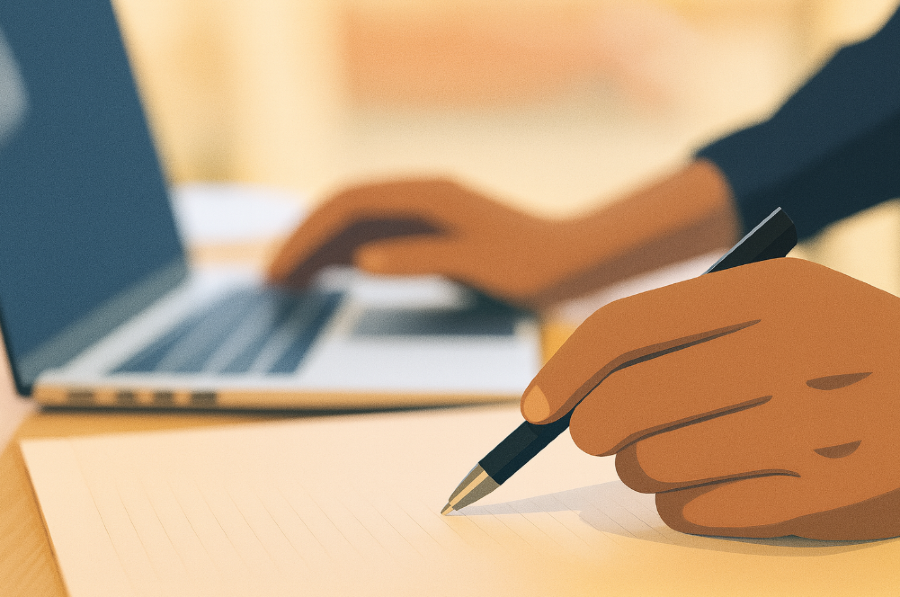
When Is Mediation Used in Personal Injury Law?
Mediation can be used at various stages of a personal injury case, and its timing often depends on the circumstances and the court’s rules in your area:
-
Pre-Lawsuit Mediation: Sometimes mediation is attempted before a lawsuit is even filed. For example, after a car accident claim, if negotiations with the insurance adjuster stall, both sides might agree to bring in a mediator to avoid filing a lawsuit. This can save legal costs and time if successful. It’s an opportunity to settle early, privately, and avoid the adversarial court process altogether.
-
During Litigation (Pre-Trial): It’s very common to mediate after a lawsuit has been filed but before the case goes to trial. In California, many courts actually encourage or require mediation before trial as a way to reduce court backlogs. In some jurisdictions, mediation can be court ordered, meaning the court mandates that the parties attempt mediation before proceeding to trial. By the time discovery (exchange of evidence) is done and trial is looming, both sides have a clearer picture of the case’s strengths and weaknesses. That’s an ideal moment to mediate – often on the eve of trial – to see if you can reach a settlement and avoid the risk of trial. In fact, in some California jurisdictions, a judge will not set a firm trial date until the parties have attempted mediation or another form of alternative dispute resolution. While mediation is not mandated in every case, it is standard practice in many personal injury disputes in California to try mediation at least once before letting a jury decide the outcome.
-
After a Trial Has Started: Occasionally, even if a trial has begun, a judge might pause proceedings to let parties attempt a last-minute mediation or settlement conference. This is less common, but if testimony reveals new information or both sides start leaning toward compromise, a mediator might be called in mid-trial to facilitate a settlement and avoid finishing the trial.
-
Any Time by Agreement: The parties can agree to mediate at any time during a dispute. There’s no hard rule – it truly is a voluntary tool. Some personal injury cases mediate very early; others only mediate after months (or years) of legal wrangling. The key point is that mediation is used when both sides see a potential benefit in negotiating a deal rather than continuing to fight it out. If liability is contested or the insurance company thinks the plaintiff’s demand is too high, a mediator might help bridge the gap. Likewise, if the plaintiff wants a quicker resolution due to mounting medical bills or personal reasons, mediation can be an attractive option to reach a resolution sooner.
Mediation is especially useful in cases that look like they might go to trial but still have room for compromise. Going to court is always a gamble – even a strong personal injury case could lose in front of a jury (historically, plaintiffs win only around 50% of cases that go to trial on average).
With that uncertainty in mind, both the injured person and the defendant’s insurer often have incentive to seek a sure thing (a negotiated settlement) instead of rolling the dice at trial. Mediation provides a forum to do that with the guidance of a neutral expert. Before entering mediation, it is important for both parties to set realistic goals to increase the chances of a successful negotiation. If mediation does not result in a settlement, the case proceeds to trial, where a jury makes the final decision.
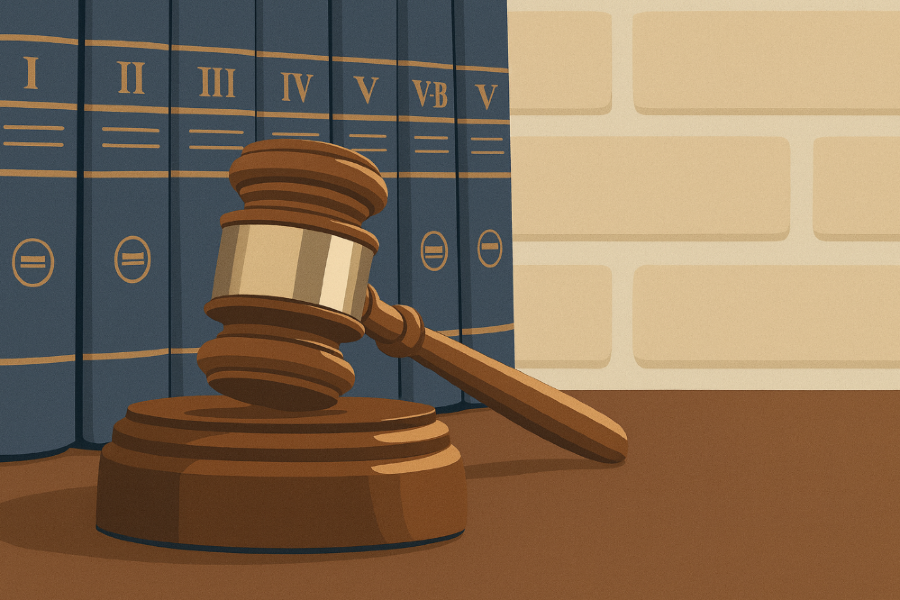
Benefits of Mediation vs. a Jury Trial
Choosing mediation over a jury trial in a personal injury case can offer many benefits. There are several advantages to choosing mediation, such as cost-effectiveness, confidentiality, and greater control over the outcome. In mediation, the mediator helps the parties communicate and collaboratively find solutions to their dispute. Here are some of the major advantages of mediation for injury victims, especially in California:
Much Faster Resolution
Mediation can resolve a case in a matter of hours or days, whereas a trial can take years to conclude. The average personal injury settlement (without trial) might take around 6 to 12 months, whereas going through a full trial can add significantly more time – often up to 2+ years before you get a verdict and any payout.
Mediation sessions are usually scheduled for a single day (and many disputes settle in that one day or after a few sessions). For an injured person dealing with medical bills and uncertainty, this speed provides quicker closure and relief.
Lower Costs and Fees
Taking a case to trial is expensive. There are court fees, costs of depositions, and expert witness fees (doctors, accident reconstruction experts, etc.) that your attorney may have to advance and later deduct from any award. Mediation, by contrast, involves far fewer expenses – mainly the mediator’s fee (often split by the parties) and perhaps some preparation costs.
Settling through mediation means you avoid the hefty costs of prolonged litigation, leaving more of the settlement in your pocket. Even the defense (insurance company) saves money by avoiding trial, which can make them more willing to offer a reasonable settlement. In short, mediation is cheaper for everyone involved.
Less Stress and Emotional Toll
A jury trial is a high-stress, adversarial event – you may have to testify, be cross-examined, and listen to the defense downplay your injuries. Mediation is far more informal and collaborative. You typically sit in a comfortable conference room, not a witness stand. You usually don’t have to directly face the defendant or their lawyers during the negotiation (the mediator does the shuttling).
This environment is less intimidating and allows for a calmer discussion. Many clients find mediation to be a more humane and less emotionally draining process than a public trial that can rehash painful details in open court.
Privacy and Confidentiality
As mentioned, mediation is confidential and private. Court trials are public record – anyone can sit in the courtroom, and filings become part of the public file. If you value privacy (for instance, you don’t want details of your medical condition or the accident in the public domain), mediation keeps everything behind closed doors.
Confidentiality (protected by law in California) also means both sides can speak freely and make concessions without worrying that it will be used against them later. This often leads to more candid dialogue and a higher chance of reaching a fair deal, because people are more willing to “lay their cards on the table” when they know it won’t hurt them in court.
Greater Control and Predictability
In mediation, you have a say in the outcome; in trial, the outcome is in the hands of strangers. By mediating, you can avoid the uncertainty of a jury verdict, which can be a gamble even with a strong case. For example, even if liability is clear, a jury might be unpredictable in how much they award in damages (or they might sympathize with the other side for arbitrary reasons).
Mediation gives you the chance to negotiate an amount that you find acceptable. You also avoid the scenario of winning nothing – since you decide whether to accept an offer, you won’t walk away empty-handed unless you choose to. This control means no surprises; you settle only if you’re satisfied with the terms. Studies and legal observers note that mediation has a high success rate in producing mutually acceptable settlements for both sides, precisely because the parties craft the resolution themselves.
Essentially, mediation can be a win-win or at least a “no loser” scenario: if a settlement is reached, both sides had to agree it was acceptable, and if not, you still retain your right to go to court.
Preserves Relationships (When Applicable)
In some personal injury cases (for instance, disputes involving family members, neighbors, or business relationships), mediation’s cooperative approach can preserve a working relationship or amicability better than a scorched-earth trial battle would.
This may be less of a factor in typical accident cases where parties don’t know each other, but it’s worth noting that mediation is generally less hostile. Even with a car accident or injury claim against a business, keeping the tone civil can reduce animosity and mental anguish for the injured person.
No Risk of Appeal or Jury Bias
If you settle at mediation, the case is done – you won’t face years of appeals. Jury verdicts, on the other hand, can be appealed and dragged out. Also, mediation sidesteps the risk of juror biases or oddball juries.
You don’t have to worry about whether jurors will understand complex medical evidence or whether a sensational element might distract them. The mediator is an experienced legal professional who focuses on facts and practical solutions, not emotional persuasion to a lay jury. This can be particularly beneficial in cases that might be complicated or technical.
Of course, mediation isn’t magic. It requires both parties to be reasonable and come to an understanding. If the defendant (or their insurer) absolutely denies any fault or refuses to offer a fair amount, mediation might not succeed. However, even then, going through mediation can clarify the dispute and sometimes narrow the gap – even if you don’t settle on the spot, the discussions might lead to a settlement later.
And remember, nothing lost: if mediation fails, you still have the option to take your case to trial. Given the high costs and risks of litigation, it’s easy to see why RMD Law generally recommends attempting mediation in any personal injury case that appears headed toward a courtroom. The potential benefits usually far outweigh the drawbacks.
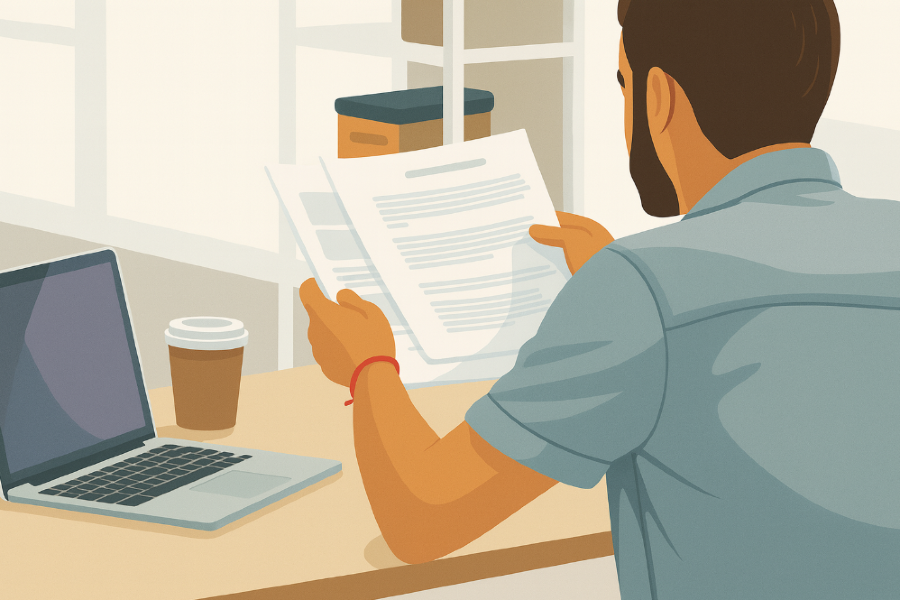
How RMD Law Helps You Navigate Mediation
While mediation is more informal than trial, you should still approach it fully prepared – and that’s where the experience of a personal injury lawyer is invaluable. During mediation, the mediator assists by facilitating communication between the parties, guiding the process, and helping everyone work toward a mutually acceptable resolution.
The mediator has a responsibility to remain neutral with all people involved in the dispute, ensuring fairness and impartiality. It is also essential that mediators adhere to strict ethical standards throughout the mediation process. At RMD Law, our attorneys have extensive experience handling mediations for accident and injury cases in California, and we take several steps to protect your rights and maximize your outcome:
Case Evaluation and Mediation Timing
Our lawyers will assess whether and when mediation is in your best interest. Not every case should mediate at the same point – for instance, if we need certain evidence or expert opinions first to strengthen your position, we might wait until after those are obtained.
RMD Law attorneys know how to time the mediation for maximum impact, often after key evidence has been gathered but before the legal costs skyrocket. We also ensure that mediation is voluntary and advantageous – we won’t push you to settle for less than you deserve.
Choosing the Right Mediator
The choice of mediator can influence the result. There are many mediators to choose from, each with different qualifications and experience. With our firm’s experience, we are familiar with the reputable mediators in California (especially those who handle personal injury cases). When selecting the right mediator for your case, it is important to consider the mediator’s background, including their expertise, training, and certification. We aim to select a mediator who is fair and has a track record of facilitating reasonable settlements.
Typically, this is someone both sides respect – often a retired judge or veteran attorney known for neutrality. We collaborate with the defense to pick a mediator who fits the case. This careful selection helps set the stage for a productive negotiation.
Thorough Preparation and Mediation Briefs
Just as we would prepare intensively for trial, our team prepares thoroughly for mediation. We gather all the crucial evidence – medical records, accident reports, witness statements, photographs, expert analyses – and distill them into a compelling mediation brief. This is a document we submit to the mediator (and sometimes to the other side) before the mediation, outlining the facts, legal arguments, and damages of your case.
The goal is to present a persuasive case for why you are entitled to significant compensation. By doing this homework, we enter mediation from a position of strength, backed by facts and law. During this process, the mediator may use reality testing to help both parties understand the strengths and weaknesses of their positions, ensuring expectations are grounded in the practical realities of the case.
Advocacy and Guidance During Mediation
On mediation day, an RMD Law attorney will be by your side throughout the process. We typically start with an opening presentation (if there’s a joint session) to frame your story and highlight the defendant’s risk if the case goes to trial. Then, during private caucuses, we communicate with the mediator, counter the defense’s arguments, and continually strategize on offers and responses.
Our role is to be your advocate and negotiator. We’ll also keep you informed in real-time – explaining the significance of each offer, the pros and cons of accepting or holding out, and what range of settlement would be fair given our experience with California juries and settlements. With RMD Law handling the negotiation, you won’t be left to figure anything out alone. Our attorneys are skilled in the art of negotiation and will fight for the best result obtainable.
Ensuring Fairness and Protecting Your Rights
A mediator’s suggestion is not an order – it’s just a recommendation. We make sure any settlement you consider is truly fair. We draw on past case results and data (for example, typical settlement values for similar injuries in California) to evaluate offers. If the defense is undervaluing your claim, we’re prepared to walk away and proceed to trial.
Sometimes, mediators may pressure both sides to “meet in the middle,” but our lawyers never forget the real goal: getting you the compensation you deserve for your injuries, medical bills, lost income, and pain and suffering. We act as a safeguard so that you don’t feel pressured into a subpar deal. And if a settlement is reached, we’ll ensure the written agreement is properly drafted and protects your interests (e.g. addressing any liens, payment timelines, etc.). Once signed, your settlement agreement is legally binding and enforceable in court, giving you the security that the terms will be upheld.
Leveraging California Law to Your Advantage
Our firm’s knowledge of California personal injury law and mediation rules is a huge asset. For instance, we make full use of California’s confidentiality protections to allow open discussion during mediation without jeopardizing your case.
We also know that in California, if a case doesn’t settle, certain pre-trial settlement offers (like §998 offers) can shift costs – we use these legal tools to put additional pressure on the opposition to be reasonable at mediation. Additionally, if the court requires mediation or a settlement conference, we handle all the procedural aspects and ensure you comply with any local rules while maximizing your strategic advantage.
Companion Through the Process
Perhaps just as importantly, an RMD Law attorney serves as your guide and support through what can be a unfamiliar process. We’ll explain what to expect at mediation, prep you on how it works (you’ll be relieved to know you likely won’t have to speak much, unless you want to).
We often advise clients to remain patient and flexible – negotiations can involve some back-and-forth and even emotional moments. Having a seasoned lawyer with you gives you confidence and peace of mind. We take care of the heavy lifting in the negotiation so you can focus on making decisions with the facts we provide. Thorough preparation and strategic guidance throughout the process significantly increase the chances of a successful mediation.
At the end of the mediation, if a settlement agreement is reached, we review every detail to make sure it’s complete and binding (so the defense can’t wiggle out later). If no settlement is reached, don’t worry – we are fully prepared to take your case to trial and fight for you in court.
In fact, sometimes a mediation that doesn’t settle immediately will still lead to a settlement days or weeks later, after everyone has had time to reconsider; we keep the dialogue open with the mediator and defense if we think a deal can still be achieved. Either way, you have an experienced personal injury litigator on your team, ready to do what it takes to get justice.
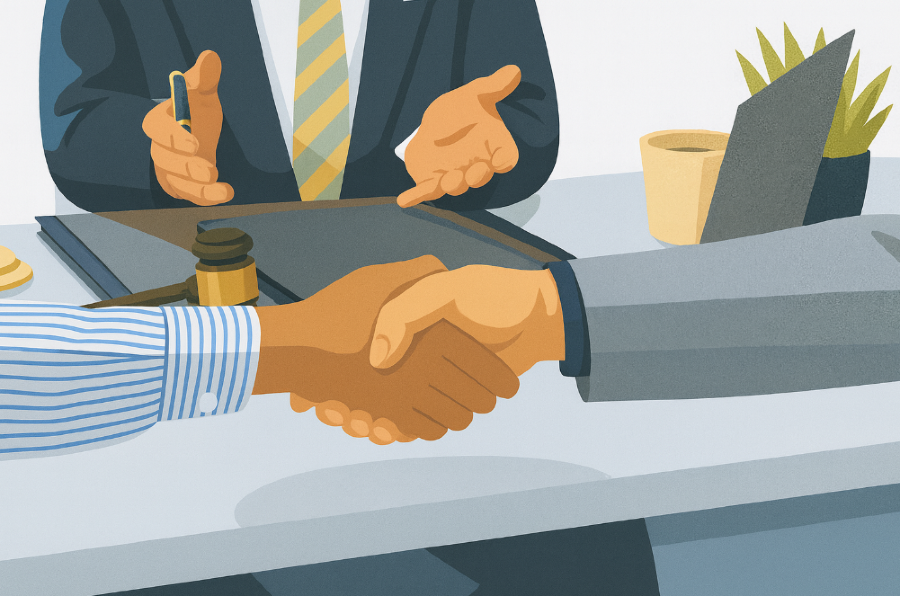
Mediation as a Smart First Step in California Injury Claims
Mediation has become a cornerstone of resolving personal injury disputes in California. It’s not hard to see why – mediation can save you time, money, and stress while often leading to a fair outcome without the roll of the dice that is a jury trial. With over 95% of injury cases settling out of court, mediation is often the bridge that helps parties reach that settlement. Especially here in California, where courts encourage alternative dispute resolution, mediation is frequently the smart first step before resorting to a trial.
If you’ve been injured in an accident and are unsure about the next steps, consider the benefits of mediation. And remember, you don’t have to go into it alone. The personal injury attorneys at RMD Law are experienced negotiators who have successfully mediated countless cases for our clients. We know how to present a strong case to the mediator, how to counter the insurance companies’ tactics, and how to guide you through the process toward the best possible outcome. Our goal is simple: to get you the fair compensation you deserve, in the most efficient and stress-free way possible – whether through mediation or, if necessary, a courtroom battle.
If you have questions about mediation in a personal injury case or want advice on the best approach for your claim, contact RMD Law today at (949) 828-0015 for a free, no obligation consultation. We’re a personal injury law firm in California dedicated to helping accident victims, and we can help you decide if mediation is the right path for your situation. With our skilled attorneys by your side, you can enter mediation confident and well-prepared – and you just may walk away with a settlement that leaves you very happy.
FAQs
Mediation in personal injury law is a confidential, voluntary process where a neutral third-party mediator helps the injured victim and the opposing party—usually an insurance company—negotiate a settlement without going to trial. It allows both sides to resolve disputes privately and more efficiently.
Yes, in many cases. Mediation is often faster, less expensive, and more private than a jury trial. In California, courts frequently encourage or mandate mediation to reduce trial backlog. It gives injured parties more control over the outcome and avoids the unpredictability of a jury verdict.
Mediation can be used at several points in a personal injury claim: before a lawsuit is filed, during litigation, or right before trial. In California, it is common for courts to require mediation before setting a trial date. It’s especially useful when both sides are open to compromise but haven’t reached an agreement through direct negotiation.
Yes. Having an experienced personal injury attorney during mediation is crucial. Your lawyer will prepare your case, select a qualified mediator, and negotiate on your behalf to ensure you receive fair compensation. Without legal guidance, you may accept less than your claim is worth.
RMD Law provides skilled mediation representation by evaluating your case, preparing strong evidence, handling negotiations, and protecting your rights throughout the process. Our California-based attorneys guide you every step of the way to maximize your settlement and avoid unnecessary delays.
- Uneven Sidewalk Injury: How Much Is Your California Slip and Fall Case Worth - March 3, 2026
- 6 Serious Injuries from a Dog Bite: And When to Call a Dog Bite Lawyer - February 27, 2026
- Restaurant Slip and Fall in California: What Happens After a Bar or Dining Area Injury - February 24, 2026

